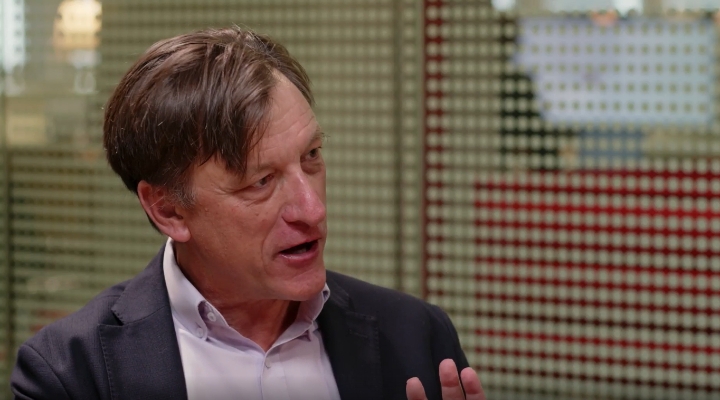This article is part of Morningstar’s Guide to Your Financial Education, providing our readers with the tools they need to become a successful private investor.
A fund is an investment vehicle that allows a large number of people to pool their money together in order to invest in a range of different securities such as stocks and bonds.
In the UK, when people talk about funds, they are generally referring to open-end funds, which are also called unit trusts or OEICs (Open-Ended Investment Companies).
When you buy shares in a fund, you're buying an ownership stake in a range of investments that are managed by a fund manager. The fund manager combines your money with that of other investors and uses the money to buy and sell investments, with the goal of increasing the value of the fund.
The investments held in a fund are called the fund's assets. The fund manager invests the fund's assets, typically by buying stocks, bonds, or a combination of the two. Some funds buy more complicated securities such as property and commodities and almost all funds have a ‘buffer’ of a cash allocation.
The investments within a fund are often referred to as a fund's holdings, and all of a fund's holdings together are its portfolio.
The price for a share in an open-end fund is calculated by taking the total value of the securities owned by the fund and dividing that number by the number of fund shares outstanding. So if a fund has £1 million in assets, and there are one million shares outstanding, each share would cost £1. This per-share value is called the net asset value (NAV).
When you invest in a fund, you are getting exposure to every investment within that fund. Let’s take one of the best performing UK equity income fund over the last ten years, Invesco Perpetual High Income, as an example.
Three of the top 10 holdings are AstraZeneca (AZN) making up 4.64% of the fund, GlaxoSmithKline (GSK) at 3.2% and BT (BT.A) at 4.37%.
If you chose to invest in this fund, a £1,000 investment would mean that you owned a £46.40 stake in AstraZeneca, a £32 stake in GlaxoSmithKline and a £43.70 stake in BT. You would also have owned smaller stakes in 72 other companies, since the fund owned shares in 75 companies as of September 10, 2015.
Investing in this Invesco fund would allow you to be diversified over a broad range of assets, which is desirable since you avoid putting “all your eggs in one basket” and instead spread your risk across 59 different investments. Your risk is spread, so your investment does not depend too heavily on the fortunes of just a few individual companies.
Funds differ based on their investment strategies and investment holdings. Some funds focus on buying and holding shares in large UK companies while other funds may focus solely on investing in bonds issued by companies in emerging markets. A fund's investment strategy will affect a fund’s risk profile and performance.
The Benefits of Fund Investing
Funds offer some notable benefits to investors:
1. They Require a Small Initial Investment
If you had just £1,000 to invest it would be difficult for you to assemble a varied, diversified investment portfolio on your own. But by buying a fund offers this – and gives you the clout of the asset manager.
2. They're Easy to Trade
Whether you’re buying funds online by yourself or hiring a broker or financial adviser to do it for you, funds are easy to buy. Once you have set up the financial transaction, it often takes just a phone call or mouse click to buy or sell shares in a fund.
Unlike many other security types, such as individual stocks, you don’t need to find a buyer when it's time to unload your open-end fund shares. Instead, the vast majority of funds offer daily redemptions, meaning that the fund company will give you cash whenever you are ready to sell.
3. They're Regulated
Fund managers are regulated by the Financial Conduct Authority. But the fact that funds are regulated does not mean you cannot lose cash. The value of a fund can go down as well as up and past performance is no guarantee of future returns. If the underlying holdings lose value, so will the fund.
4. They're Professionally Managed
If you plan to buy individual stocks, you will probably want to do in-depth research to ensure you’re making a good investment. That may involve reading a company's cash-flow statement or assessing the company’s debt obligations. Such in-depth financial knowledge is not required to invest in a fund. While fund investors should have a basic understanding of markets and do research before buying into a fund to assess its suitability, in the end, there is much less investment research required.
You are putting money into a fund and then the fund manager will select individual securities on your behalf. They do the investment research for you and you can take advantage of the fund manager's specialist investment knowledge.
Not all funds deliver their aim however, some funds charge expensive fees and some funds can perform poorly. But overall, funds are good investments for those who don’t have the money, time, or interest necessary to compile a collection of securities on their own.
The original version of this article was published November 2010 on Morningstar.co.uk
Award-winning Morningstar fund research is now available for free, click here to access nearly 1,000 reseach reports on Oeics, investment trusts and ETFs































